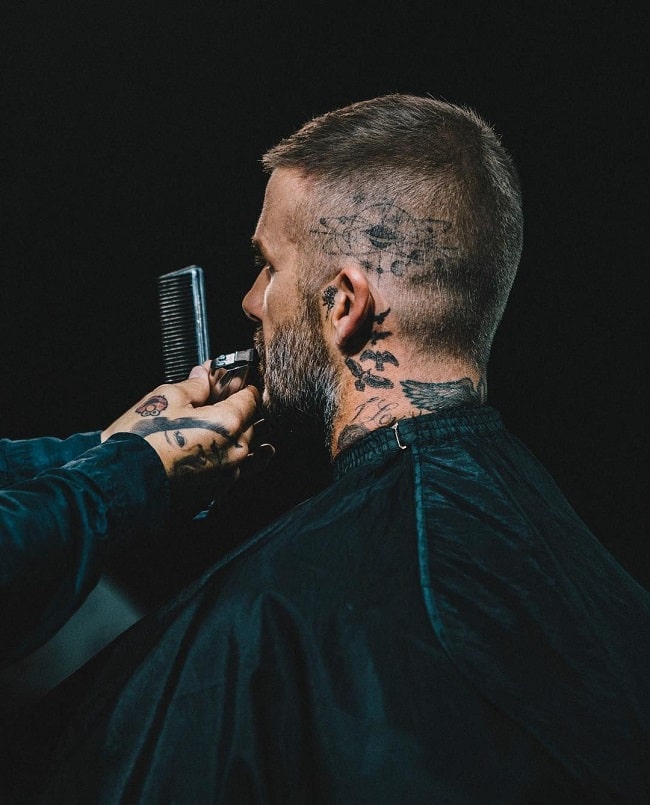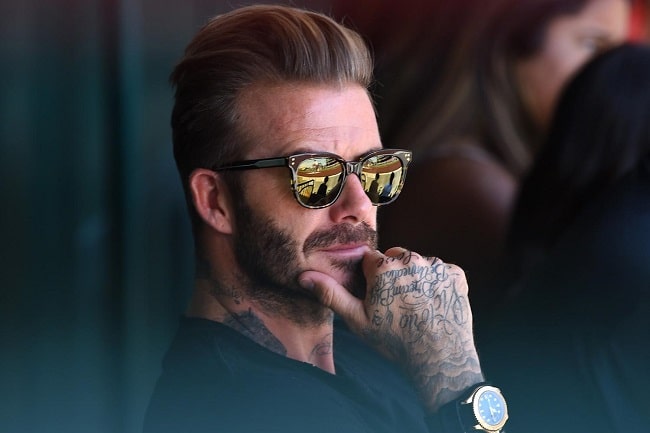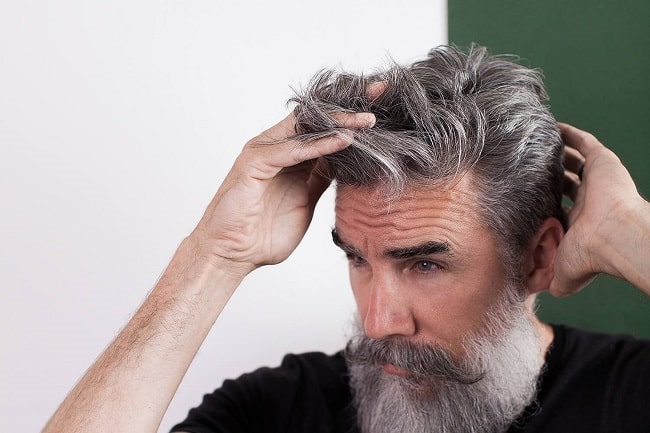1
HOME > Hair >
THE PROPER WAY TO USE SHAMPOO & CONDITIONER FOR HEALTHY HAIR
EXPERT MEN’S HAIR ADVICE FROM PHILIP KINGSLEY TRICHOLOGIST, ANABEL KINGSLEY
Written by Menswear Style in Hair on the 23rd August 2019

You probably shampoo your hair each time you take a shower and some of you will use a conditioner too. But like most average guys, you probably haven’t given much thought on how to properly take care of your hair. Well, here we have expert tips with clear and simple explanations from Philip Kingsley’s Trichologist, Anabel Kingsley.
How often a man should shampoo his hair
Shampoo daily if possible – but don’t leave more than two days between shampoos. Your scalp is skin – it’s living tissue that sweats, produces oil and sheds dead skin cells. As such, it should be given similar care to the skin on your face. You also take your hair and scalp to the same places you take your face and they get just as dirty. Scalp health is key to healthy hair growth, so frequent shampooing is also important if you want to optimise your hair growth potential. If you have a flaky, itchy scalp it’s essential to shampoo daily with an antimicrobial shampoo. Just like if you had any skin condition, like acne or eczema, targeted topical products must be applied daily to the scalp to effectively combat an issue. I recommend our Flaky/Itchy Scalp Shampoo, which was originally formulated for Sir Laurence Olivier and smells like fresh green apples.

The best way to shampoo hair
Shampooing is really about cleansing the scalp, so make sure to give your scalp a firm, yet gentle, massage. I recommend working shampoo into your scalp for approximately 60 seconds and then rinse well. This helps to ensure you're effectively removing sweat, sebum (oils) and dead skin cells. There is no need to scrub your hair – any suds that run through them will be enough. Choose a shampoo based on your hair texture. For instance, if you have fine hair choose a protein-rich shampoo that adds body. Using a shampoo that is too heavy for your hair type can weigh it down.
Don’t’ forget conditioner
You should use conditioner after every shampoo. Conditioner soothes the hair cuticle, which adds shine and increases manageability. Only apply conditioner to your mid-lengths and ends. This is where moisture is needed the most. Applying conditioner to your roots can weigh them down. Rinse well. If you have an allergy or sensitivity to an ingredient you may need to avoid certain ingredients. Choose a conditioner formulated for your hair texture. For men with fine hair, I recommend our Body Building Conditioner.

Take note of your diet
A healthy, balanced diet is essential to hair growth. Being non-essential tissue, our hair is the last part of us to receive nutrients we intake and the first to be withheld from when our diet is lacking. One of the most important nutrients for hair health, and the production of strong and robust strands, is protein – the substance hair is made of. To ensure your hair is receiving an adequate supply of protein, add at least a palm sized portion of protein to your breakfast and lunch. Great options are eggs, fish, lean meat, poultry, low fat cottage cheese and quinoa. Complex carbohydrates are also essential as they provide energy to form hair cells, which are in fact the second fastest growing cells the body produces. Add a helping of brown rice, pasta, couscous or whole wheat toast to your breakfast and lunch. If you exercise, make sure to refuel your body post-workout. If your body is deprived of energy, your hair will be first to feel the effects. Again, this is because hair is non-essential to physiological health – albeit it it’s very important to psychological wellbeing. If you have a tendency to get a flaky/itchy scalp, be aware that full fat dairy products, as well as white wine, champagne and very spicy sugary foods can flare it up. Trigger foods aren’t the same for everyone, but these are the most common. I suggest working out what yours are by process of elimination.

Watch your tuna intake. Containing high levels of mercury, excessive consumption of tuna, or any mercury-rich fish, can be detrimental to health - and anything that effects general health can impact your hair. High mercury levels are quite common in the men I consult to in our London Clinic. Hydrate. Like any skin, the scalp can become dry if you are dehydrated. Ferritin, a stored iron, helps the body to produce hair cell protein and as such it’s a hair essential. To help maintain ferritin levels, eat iron-rich foods at least twice a week. The best sources are red meat such as steak and liver. If you are iron or ferritin deficient, take an iron supplement. I recommend our Tricho Complex Nutritional Supplement, which also contains Vitamin C (helps with iron absorption) and L-lysine (aids in iron storage). If your scalp is itchy, flaky or irritated, it can be helpful to take a nutritional supplement containing Omega 3’s, Vitamin D, as well as anti-oxidants and anti-inflammatory ingredients such as Vitamin E and Co-enzyme Q10. I recommend our Root Complex Nutritional Supplement which has been formulated specifically to promote optimal scalp health. It is the first delivery system of its kind with an inner capsule of dry actives contained within an outer capsule of oil.
Guys, do you ever use hair conditioner? #hair
— Menswear Style (@MenswearStyle) August 26, 2019
Trending
2
3
4
5
6
7
8
9
10









